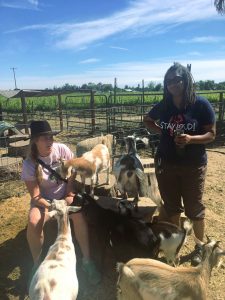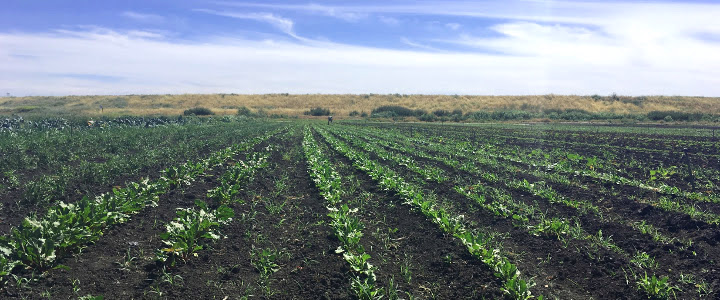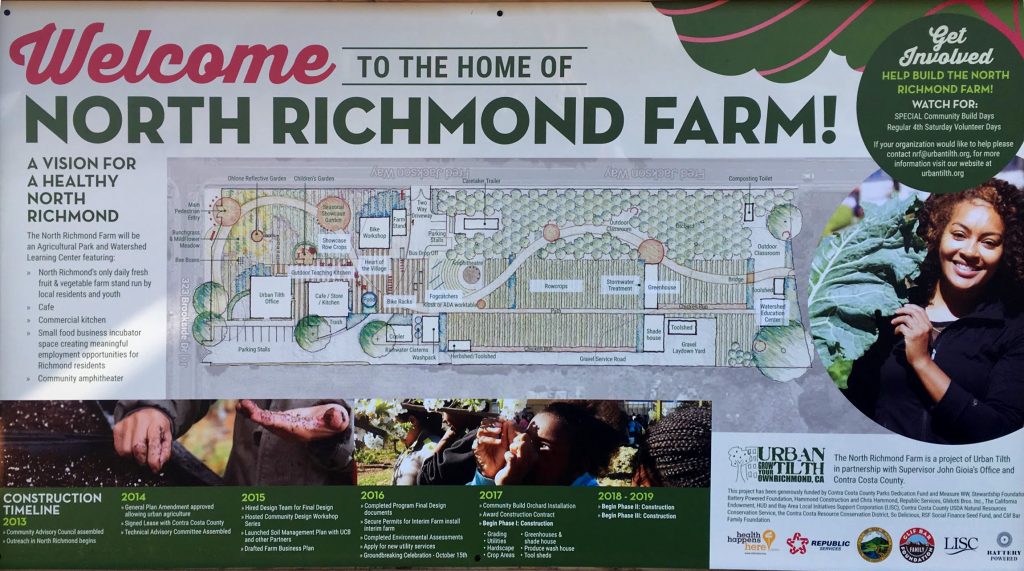Written by: Rachel O’Neal
Spring 2017
I started this minor at the beginning of my transfer to Cal. I knew I wanted to work making changes in the food system but wasn’t quite sure in what capacity. My passion was ignited in wanting to help people have access to fresh, healthy food, especially those who are marginalized and often face food insecurity and diet related illnesses disproportionately to others. I studied the food system from many angles–public policy, sociology, and agro-ecological farming practices and each class made the same point over and over: our current food system is broken and it does not serve everyone equally, and yet I wanted to know how do we fix it?
Often we hear about consumer behavior as being the solution, vote with your fork and together we can change the corporate control over our food. This discourse continually bothered me, I always wanted to push back on it and explore why this was touted as the solution. While I agree that consumers can be a powerful force that spurs change, I continually doubted that my local shopping was really making any difference in the big picture. And the truth is, it’s not. The market can not easily pick up on those signals, there is no clear link or data for them to decipher what may be going on. Plus, and perhaps most bothersome to me, is it puts the onus on the individual, making us responsible for the way things are, and the burden is on us to change it, when in fact there are such deeply embedded structural factors at play that make the corporate food system what it is today.
So when I learned more about the food justice and food sovereignty movements, I felt a bit more hopeful in finding a way to combat inequalities in food access and affordability. Food justice highlights the food security disparities that low income people of color face, disproportionately to higher earning whites and aims to address these challenges. Food sovereignty attempts to encompass deeper issues at hand in food security, rather than food simply needing to be affordable, available and accessible, it claims that food is a human right and that it should be culturally appropriate and that most importantly, people should be able to define and control their food system.
As my community engagement project I worked with Urban Tilth, a farm in Richmond whose mission aligns with the food justice movement. In my work, I made the introduction and connection to First Generation Farmers (FGF) in Brentwood, the partnership will help residents in our community find food sovereignty.
Urban Tilth has a strong mission to provide healthy food to Richmond residents, where some of the counties most extreme areas of poverty, underdevelopment and crime reside. They offer paid training programs to urban youth to learn about food, farming, sustainability, and the environment; valuable green skills to take back to their friends, families, schools, and to the world. They also have a weekly CSA box that contains over 10 pounds of fresh produce each Tuesday, offered at a sliding scale rate of $10-$25, ensuring access to healthy food is affordable to all. Their CSA has been providing over 75 Richmond residents food every week, yet over 100 more are on the waitlist, thus my project was to find partnerships with farmers in the county who could provide enough food to allow for the expansion of the program.
 First Generation Farmers is an organization in Brentwood, where some of the most fertile soil from the Delta nourishes the farmland. Their mission is to help new farmers with a low cost training program, residency, and rights to an incubator farm plot to then be able to secure a long term lease with FGF or set forth elsewhere to begin their venture. Bestowed with over 1100 acres of land ownership, this organic farm has the potential to embody food sovereignty. Land tenure is imperative in being able to define and control your own food system, allowing First Generation Farmers and its farmers-in-training to grow massive amounts of food on a huge scale and feed the community. They agreed to set aside an acre of land to grow specifically for Urban Tilth, and are eager for a dynamic relationship that evolves over the years. The partnership between FGF and Urban Tilth will provide almost 200 families with affordable, healthy, fresh food in an ongoing relationship that encompasses both justice and sovereignty, securing affordable access and controlling your own food system.
First Generation Farmers is an organization in Brentwood, where some of the most fertile soil from the Delta nourishes the farmland. Their mission is to help new farmers with a low cost training program, residency, and rights to an incubator farm plot to then be able to secure a long term lease with FGF or set forth elsewhere to begin their venture. Bestowed with over 1100 acres of land ownership, this organic farm has the potential to embody food sovereignty. Land tenure is imperative in being able to define and control your own food system, allowing First Generation Farmers and its farmers-in-training to grow massive amounts of food on a huge scale and feed the community. They agreed to set aside an acre of land to grow specifically for Urban Tilth, and are eager for a dynamic relationship that evolves over the years. The partnership between FGF and Urban Tilth will provide almost 200 families with affordable, healthy, fresh food in an ongoing relationship that encompasses both justice and sovereignty, securing affordable access and controlling your own food system.


